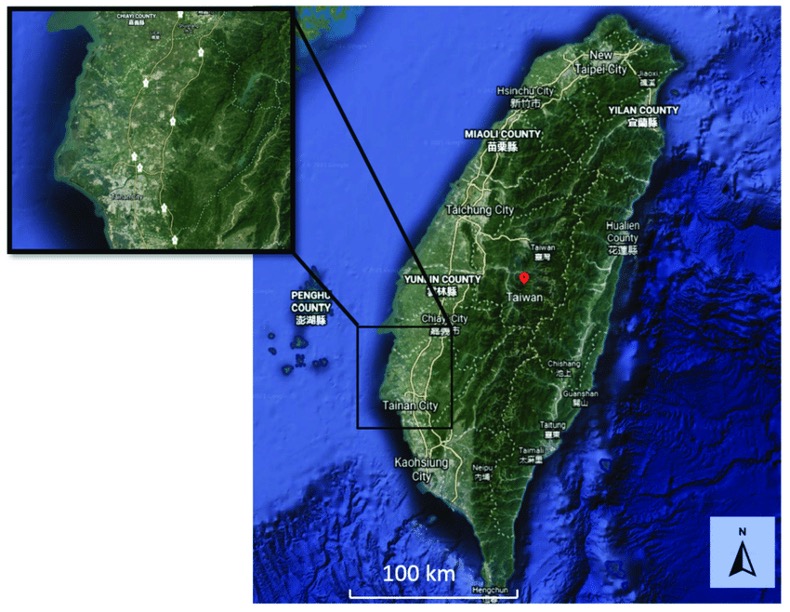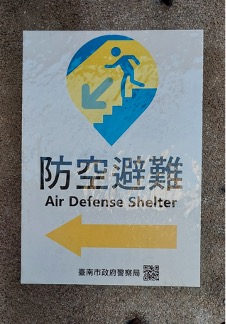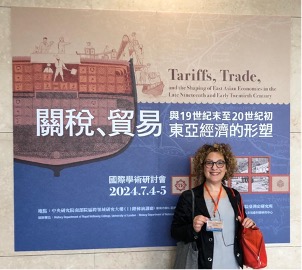A Week in Tainan (T’ai-nan) city, Taiwan
13 August 2024In this blog post, Federica Ferlanti reflects on her time in Tainan, Tawain, and the connections between past, present and teaching.
Friday (June 28th): I feel emotional boarding the plane heading to Taiwan. It may sound odd given the extent of travelling I have done: I have been to the People’s Republic of China and Taiwan many times, but I hadn’t visited East Asia since 2019 and it feels like a lifetime and a watershed moment for me. I am heading to a conference in Tainan city, in the south of Taiwan, which I have not visited before.

Sunday: After arriving on Saturday, I am off to the National Taiwan Museum to see the exhibition Transcending 1624: Taiwan and the World. It is the last day, and it is very busy.
I cannot help but think about my Year 2 students from Close Neighbours and Y3 students from Change, Conflict and Mass Mobilisation in China. Had they been here, we would be having a lively discussion about the narrative/s underpinning this exhibition. It is fascinating how the curators have approached Taiwan’s early modern history here. The exhibition celebrates proudly the uniqueness of Taiwan’s encounter with the Dutch and the Spanish from 1624 onwards and places the island at the centre of Asia’s early modern maritime expansion.
Taiwan’s history is purposely presented as separate from the Qing dynasty’s (1644-1911) who ruled over the island from the mainland between 1683 and 1895. Instead, it emphasises and celebrates the island’s openness and interconnectedness with major trade routes and cultures beyond Asia. This is as much about the present as it is about the past. I can’t help but looking at the exhibition from the perspective of contemporary geopolitics and Taiwan’s place in Asia and the world today…which is exactly what the curators are after, I feel.

Monday and Tuesday: It is 37 C outside (perceived temperature 46/49 C) and there is no way I am leaving the safety of the A/C during the day. While working on the presentation for my talk, I can see the sea from my window, and as I lift my eyes from the computer screen, two fighter jets cross the sky. Suddenly, I am reminded that the People’s Republic of China is just across that sea. Tensions have been rising since the inauguration in office in May 2024 of the new President, the newly elected Lai Ching-te (William Lai) and they increase presently with the approaching NATO summit in Washington (9-11 July)
With the presentation done, I steel myself and venture outside. As I the wonder around Tainan city’s streets, I am reminded by the posters directing people to air shelters that this is for real, and the situation could deteriorate at any time.
Wednesday, Thursday, and Friday: It is conference time at the brand-new south campus of Academia Sinica in the outskirts of Tainan city.
Ours is the first international humanities conference organised on this campus and expectations are high. There are only 13 speakers, but the organisers have invited about 80 distinguished historians who have come from all over the island to discuss our papers. On Wednesday, the usual pre-conference jitter: what will my esteemed colleagues think of my paper? Luckily, the paper goes down well, and I get some great suggestions from the discussant and questions from the audience. More work to do! Overall, it has been a great conference, and both the organisers and participants are in a jubilant mood for a job well done.

Saturday: A day of sightseeing in wonderful Tainan city despite the heat and humidity. Our local academic chaperon struggles too in the heat and remarks on how summers got hotter and typhoon more destructive in this part of the world. There is a lot to see here, and the city has bags of personality.
As we head back to our hotel in the evening, I know that I want to come back to Tainan and see more of the city and local culture. As our academics suggest, it is better if we visit in winter or spring…perhaps, I could take my class here for couple of weeks…what an idea!
- American history
- Central and East European
- Current Projects
- Digital History
- Early modern history
- East Asian History
- Enlightenment
- Enviromental history
- European history
- Events
- History@Cardiff Blog
- Intellectual History
- Medieval history
- Middle East
- Modern history
- New publications
- News
- North Africa
- Politics and diplomacy
- Research Ethics
- Russian History
- Seminar
- Social history of medicine
- Teaching
- The Crusades
- Uncategorised
- Welsh History
- Pétain’s Silence
- Talking Politics in the Seventeenth Century
- Reflections on POWs on the 80th anniversary of the Second World War – views from a dissertation student
- The Long Life of Dic Siôn Dafydd and his ‘children’
- Collaboration across the pond: uniting histories of religious toleration in the American Revolution and European Enlightenment